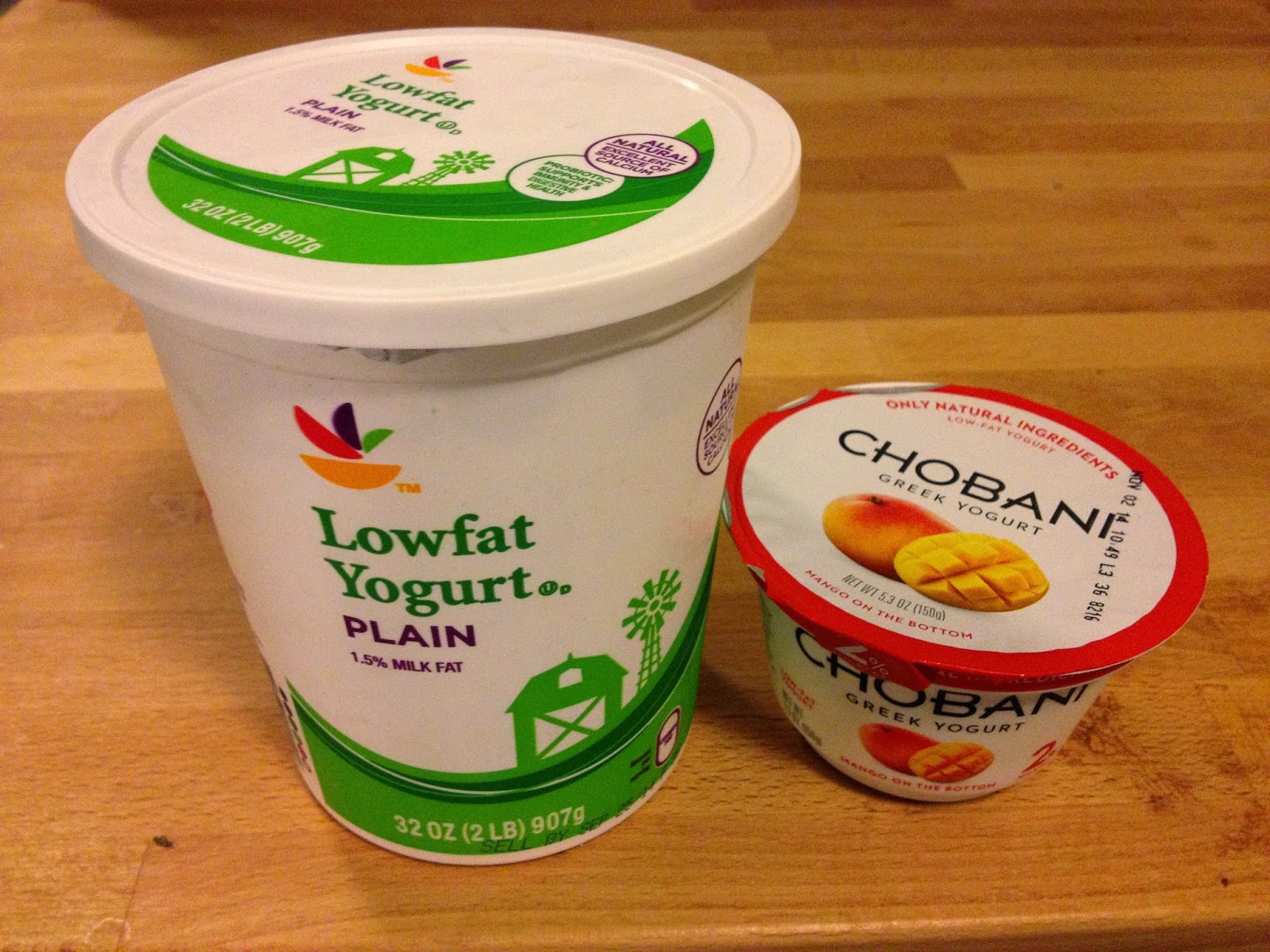Trim the Fat Tuesday: The Yogurt
To continue this month's look at the grocery list, we decided to make a small adjustment to one of our common snacks. From now on we will
Replace individual yogurt cups with a quart of plain yogurt.
With four people eating lunches away from home, we tend to pack a lot of yogurt to take along with us. After all, it's a healthy snack that can cure a craving for something sweet, and it's super-convenient to toss into a lunch box.
Sounds great, but there's a but.
All those little cups are more expensive than buying a big tub of yogurt, and of course there's more plastic involved in individual containers. We recycle them (or use them in the garden to keep cutworms at bay), but it still strikes me as more wasteful than is strictly necessary.
Getting a big container of plain yogurt is more versatile, because we can use it in cooking (think marinades and raita, for starters).
And while it's nice to pick out fun flavors of yogurt, the pre-made kind uses way more sugar than I am likely to mix into plain yogurt on my own. To sweeten a serving of yogurt, we can be creative and use our own jams, maple syrup, or some honey. Kirk suggested adding nuts, and the kids are already talking about the potential Halloween candy mix-ins (ok, so that one's not upping the health value, but I like their thinking).
On to the numbers. Our typical yogurt consumption comes to about five individual 6-oz. cups per week. The Chobani ones that everyone likes are $1 each when they're on special at Market Basket, which Kirk says is most of the time. That's 30 oz. of yogurt for $5 a week.
On the other hand, a 32 oz. tub of plain Stonyfield Farm yogurt is just $3.69 at Market Basket, and with this we get 2 oz. of bonus yogurt. (The yogurt in the photo above is not our usual choice, and is left over from the dark days of the Market Basket strike over the summer. This highlights the happy fact that yogurt lasts forever, making the big container a safe investment.)
So in the course of a month, little cups of Chobani would cost us about $20, but one big cup per week of Stonyfield Farm is just $14.76. That's a savings of $5.24 per month, with just a small adjustment of our snacking habits.
Savings per month: $5.50
Replace individual yogurt cups with a quart of plain yogurt.
With four people eating lunches away from home, we tend to pack a lot of yogurt to take along with us. After all, it's a healthy snack that can cure a craving for something sweet, and it's super-convenient to toss into a lunch box.
Sounds great, but there's a but.
All those little cups are more expensive than buying a big tub of yogurt, and of course there's more plastic involved in individual containers. We recycle them (or use them in the garden to keep cutworms at bay), but it still strikes me as more wasteful than is strictly necessary.
And while it's nice to pick out fun flavors of yogurt, the pre-made kind uses way more sugar than I am likely to mix into plain yogurt on my own. To sweeten a serving of yogurt, we can be creative and use our own jams, maple syrup, or some honey. Kirk suggested adding nuts, and the kids are already talking about the potential Halloween candy mix-ins (ok, so that one's not upping the health value, but I like their thinking).
On to the numbers. Our typical yogurt consumption comes to about five individual 6-oz. cups per week. The Chobani ones that everyone likes are $1 each when they're on special at Market Basket, which Kirk says is most of the time. That's 30 oz. of yogurt for $5 a week.
On the other hand, a 32 oz. tub of plain Stonyfield Farm yogurt is just $3.69 at Market Basket, and with this we get 2 oz. of bonus yogurt. (The yogurt in the photo above is not our usual choice, and is left over from the dark days of the Market Basket strike over the summer. This highlights the happy fact that yogurt lasts forever, making the big container a safe investment.)
So in the course of a month, little cups of Chobani would cost us about $20, but one big cup per week of Stonyfield Farm is just $14.76. That's a savings of $5.24 per month, with just a small adjustment of our snacking habits.
Savings per month: $5.50




Comments
Post a Comment